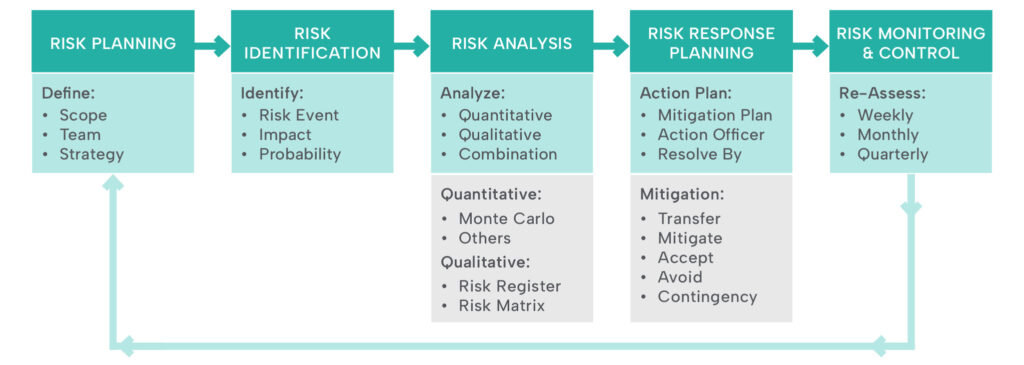Project Risk Management
Project risk management is not only a tool, it is a behavior which is learned by a project team to promote project success. It encourages project teams to be forward-looking and proactive and to engage every member of the team to deliberately prioritize and allocate resources where they are needed most.
MBP’s risk management services take multiple forms, customized to project size and complexity, addressing cost and schedule risks individually and in tandem. Regardless of the risk management tool our clients choose, the overall progress of risk management remains the same: plan for risk, identify risk, analyze risk, respond to risk, and monitor and control risk:

Project Risk Management Planning
To implement project risk management effectively, it is critically important to first develop a Project Risk Management Plan (PRMP). This can be a PRMP for a specific project or for an organization’s entire project portfolio. MBP assists clients in developing PRMPs, which map out the risk management processes, team, and tools that will be utilized throughout a project life cycle. PRMPs allow organizations to carefully consider:
- Selecting the right members of the Project Risk Management Team
- Establishing clear and efficient communication protocols
- Identifying risk parameters for impact, time horizon, and probability
- Defining the components of the Project Risk Register
- Determining the appropriate frequency of risk workshops, risk register updates, quantitative risk analyses, and other risk assessments
- Integrating project risk management processes within the project’s overall project management plan
MBP also provides training to our clients in project risk management, which orients them to the fundamentals of project risk management. This training provides a very useful launching point for their risk management planning efforts.
We provide both qualitative and quantitative risk analysis to help our clients assess and manage the risks associated with their projects: